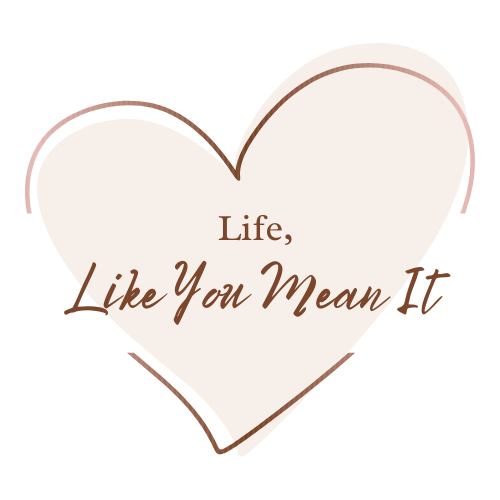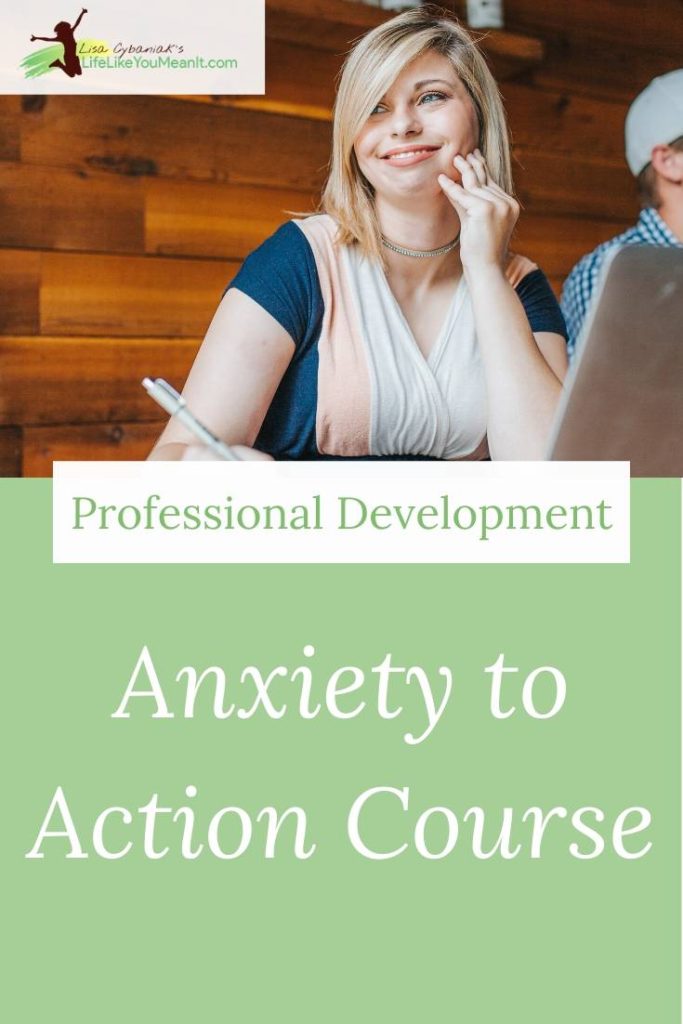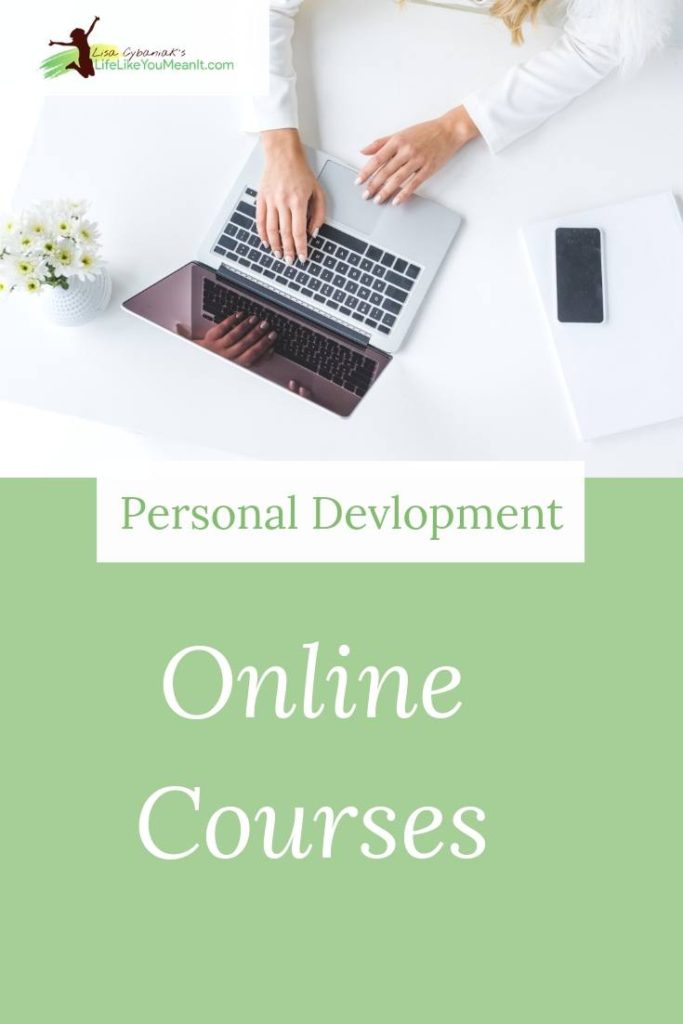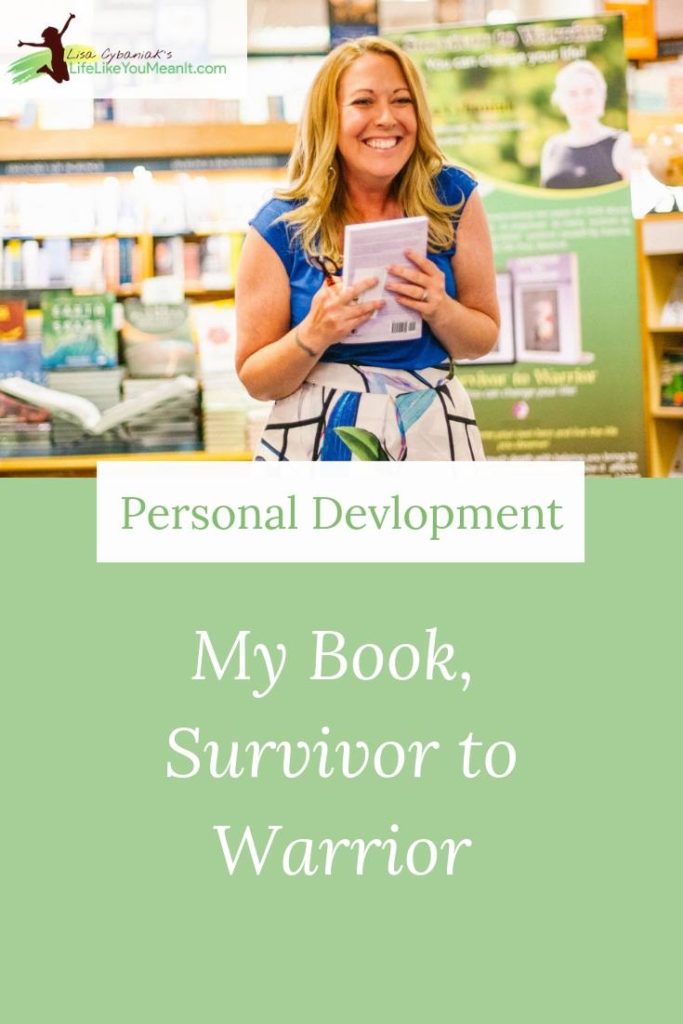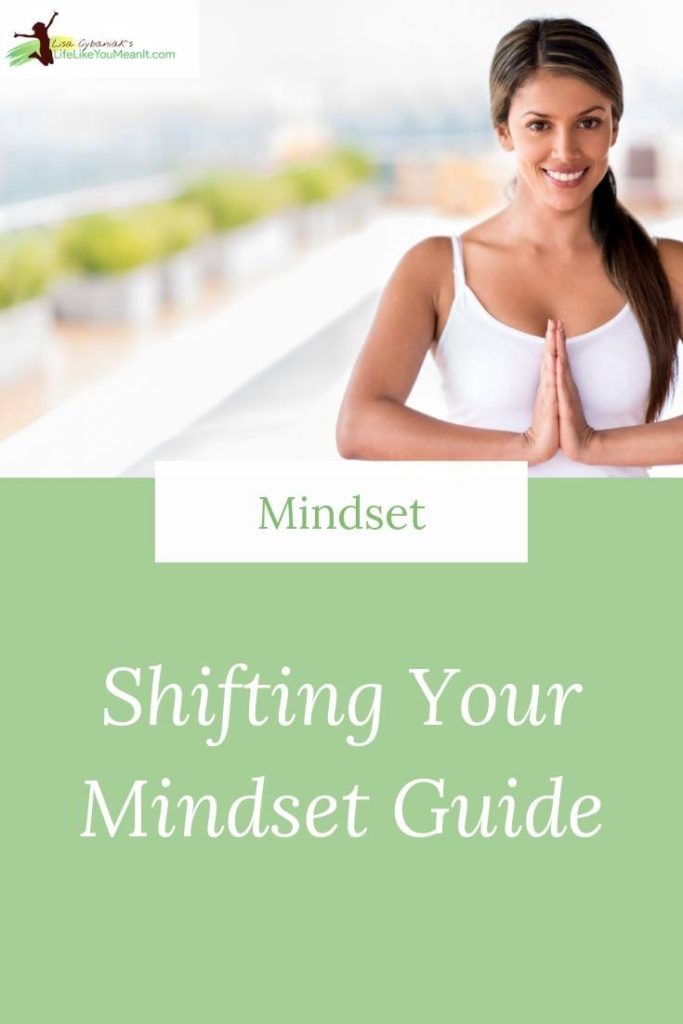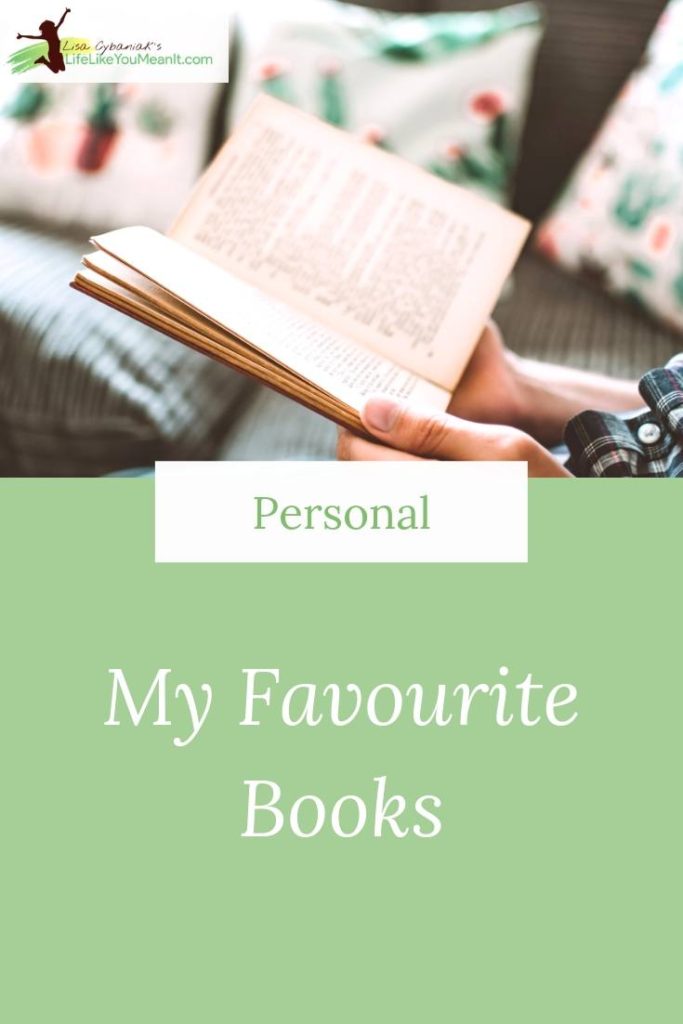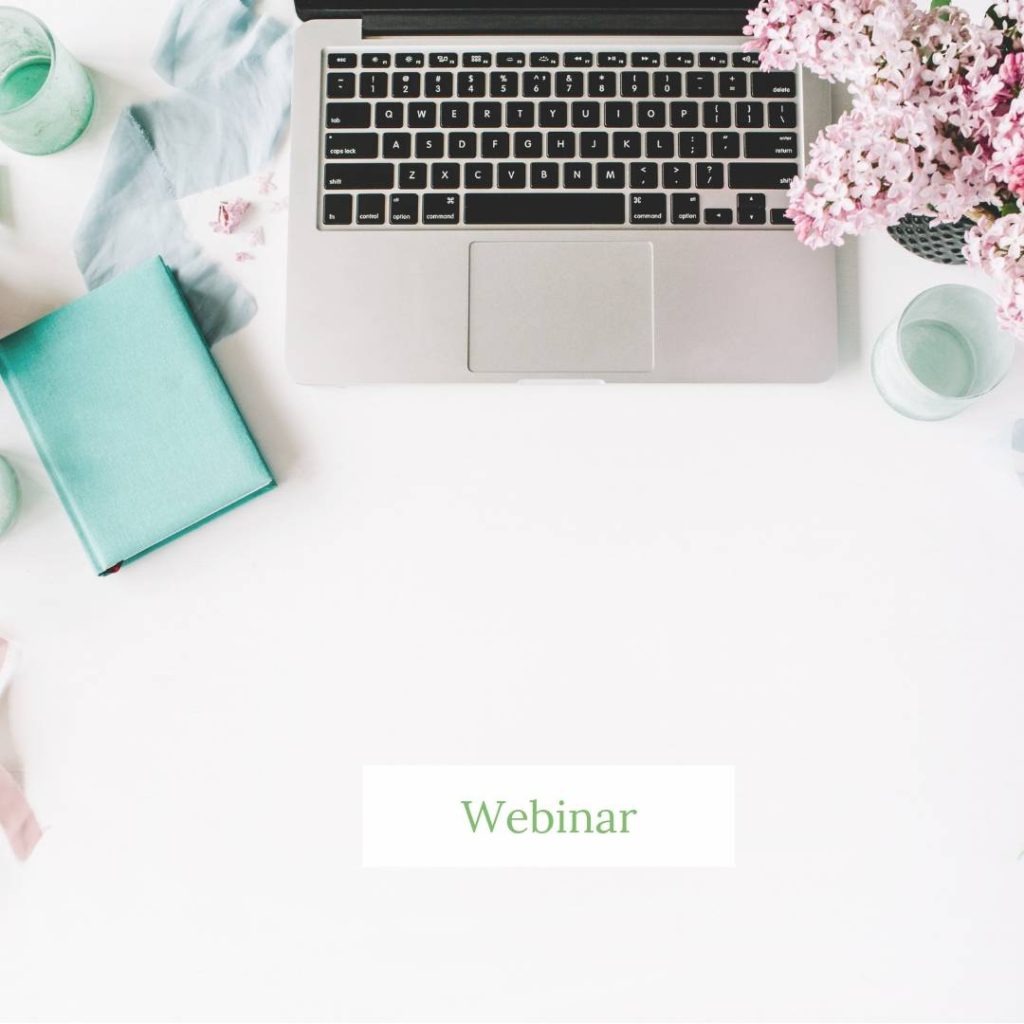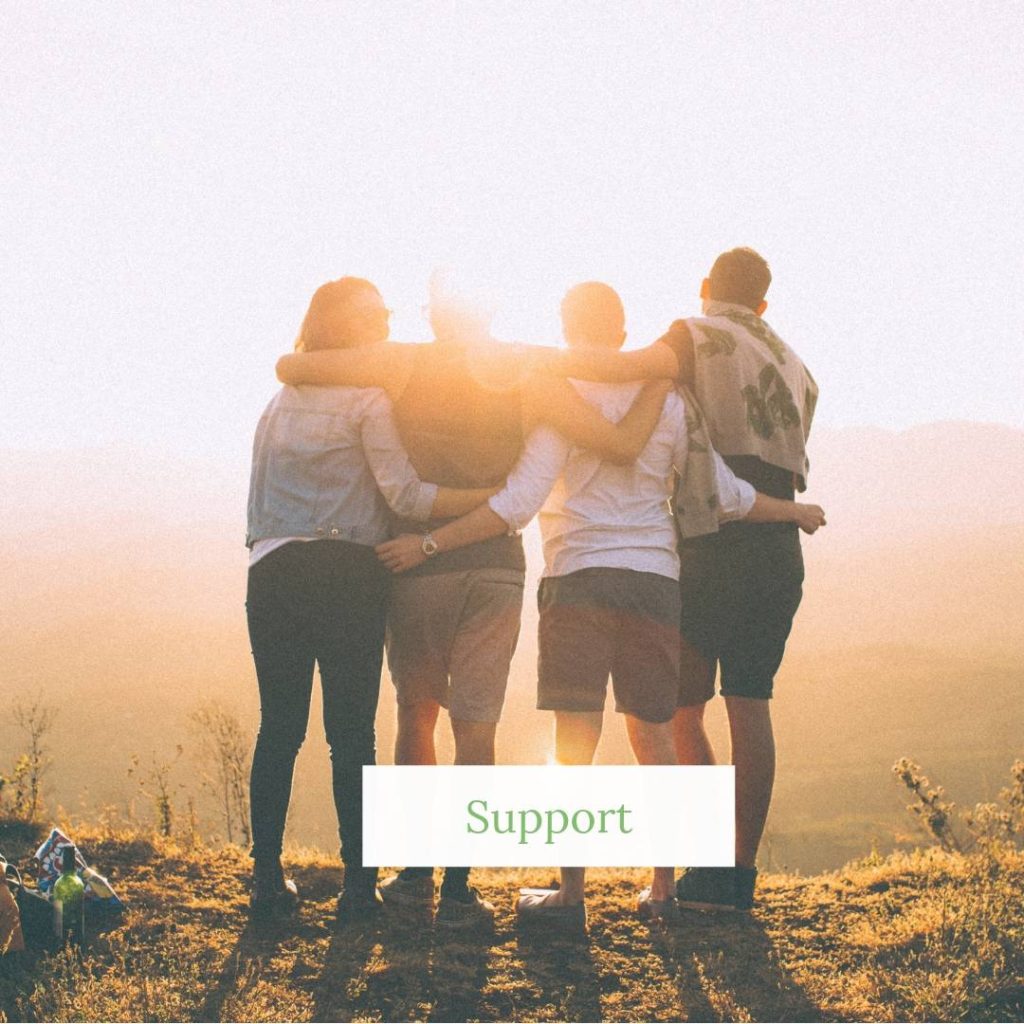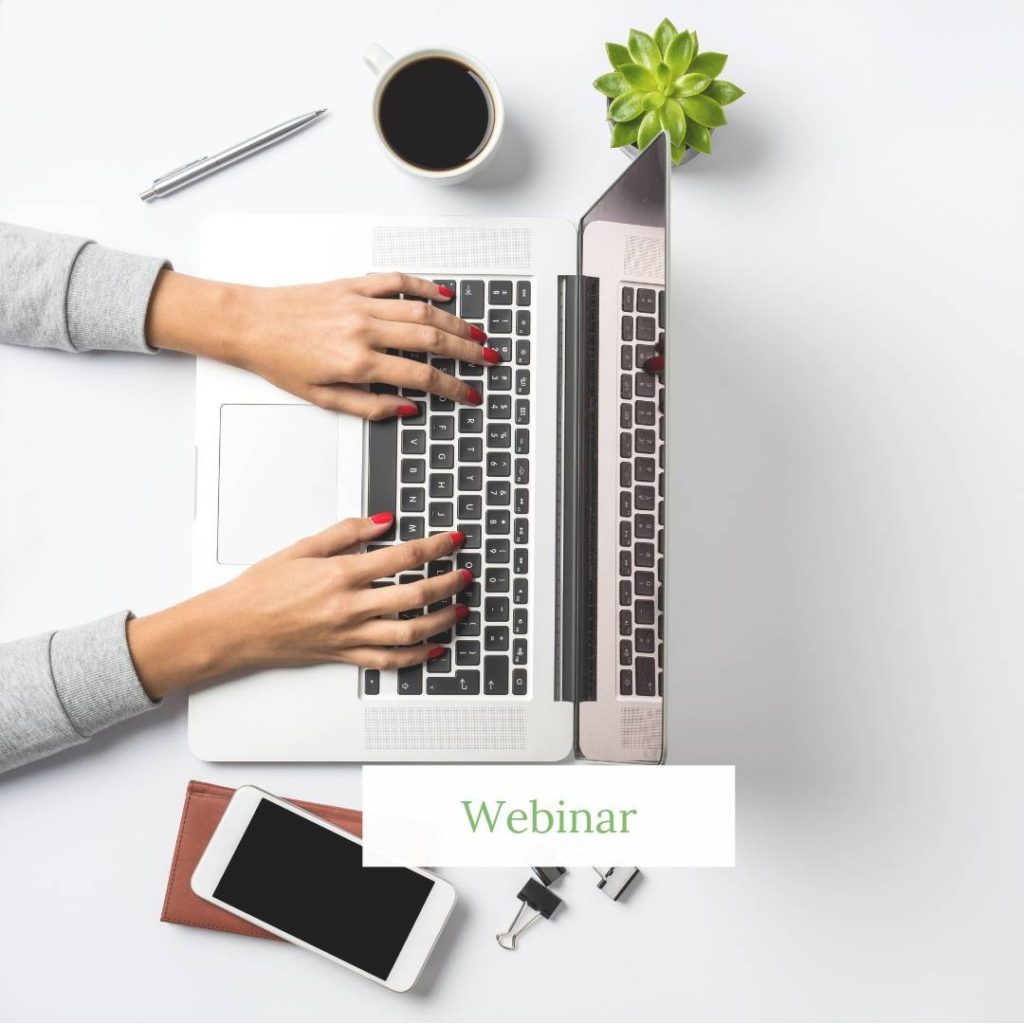by Lisa Cybaniak
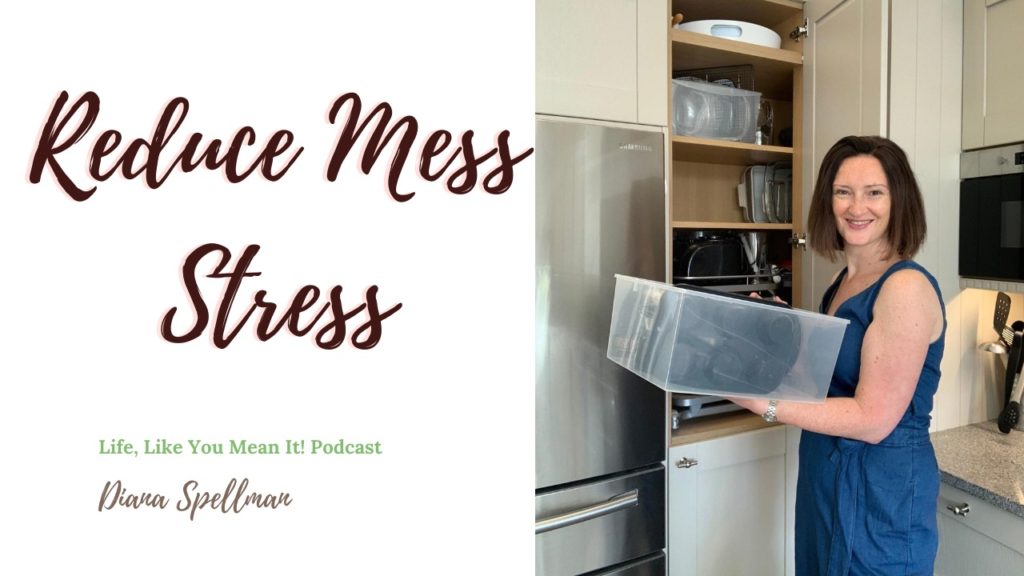
You can also listen on…
Do you suffer from mess stress? Ever since I heard this expression, I’ve been obsessed with it! Mess stress is a real thing! I’m a pretty organised person myself, but I do have piles. You know the ones? When I get some mail that I don’t have time to go through right then, but I know it’s important enough to keep it out… it goes in “that” pile.
When I finally get around to going through that pile, it’s so overwhelming. I end up spending hours doing something that would have just taken me minutes or even seconds, had I just taken care of it each day.
Now, I’ve been working from home already for the last two years. But you might still be adjusting to this new phenomena, compliments of the pandemic. And that might mean that you’re more aware and stressed out by your mess than usual.
Today we’re talking about the behaviour and mindset behind the mess in your life and how you can reduce it, and the stress, with simple steps that really work.
Diana Spellman is a female entrepreneur born out of lockdown. With 20 years’ experience working in systems/process/workflow on corporate contracts, Diana launched her business, Serenely Sorted during lockdown.
Meet Diana Spellman
Diana is no stranger to a messy environment, or the mess stress that we’re talking about overcoming today. In fact, in this episode Diana shares with us how the stress from her mess was affecting her family.
Realising she herself, and her family, had mess stress after working from home, Diana realised she couldn’t get away from the piles that had built up over time and that constant nagging voice telling her to tidy. Sound familiar?
Well, Diana set to work to develop a simple but highly effective Serenely Sorted System, which she now teaches online and via focused courses. And she’s sharing her top tips for managing your stress from merging your home, work and life during this pandemic.
So, let’s dive right in!
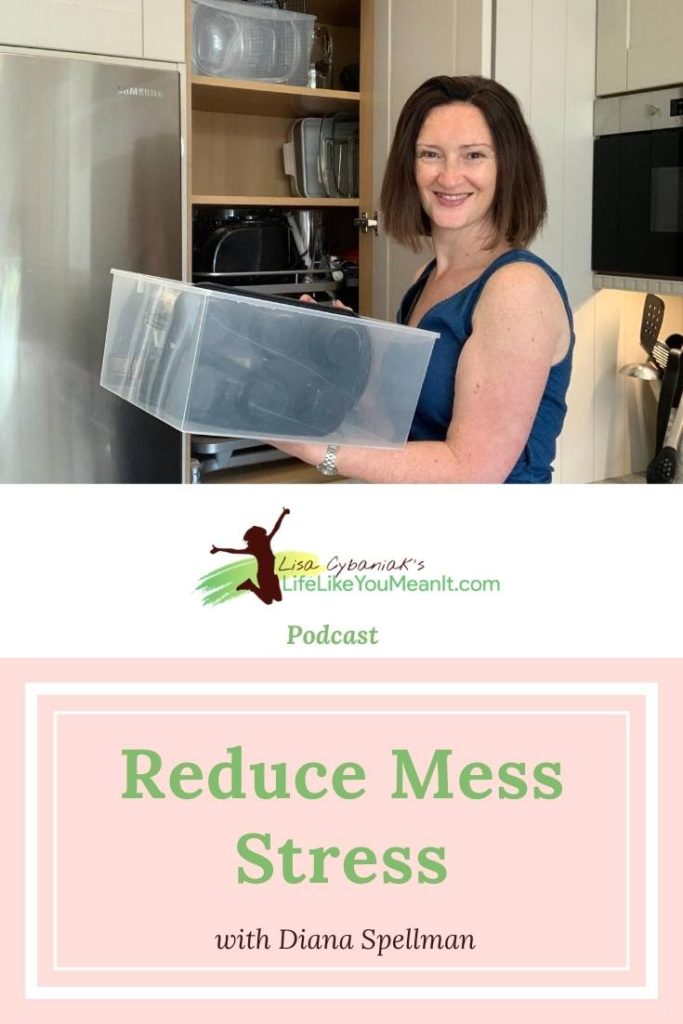
Pack up to reduce mess stress
So many people found themselves working from home in less than ideal situations, thanks to the Covid-19 pandemic. That means you might not be working from a designated home office with the perfect ergonomic set up.
Diana advises that if you must work in your main living or dining area, you should pack up your stuff at the end of the day.
Not clearing your work mess at the end of your workday means it’s very difficult to switch off from work, causing mess stress. In this case, the mess is from your work materials. So, clear them off the table/sofa at the end of the day.
Diana has a large tote bag for all her work stuff, which fits her laptop, notebooks, chargers, etc… Not only is it easy to pack away all her materials at the end of the day, but it’s also easy to unpack it the next day. And it frees up valuable personal space for her and her family.
She calls this the “use-in-one-move” approach because it avoids the endless moving of piles from one place to another, or the temptation to just leave it all out.
Create “end homes” for your top 3 mess stress makers
Working from home means you can’t get away from that mess or the mess stress. Diana recommends you start looking at your daily use areas – the surfaces in your kitchen where the “daily debris” builds up.
For her, having those surfaces clear is essential for her to wind down and relax. Look at those surfaces and take mental note of what’s on them. Is it your bag, keys, piles of paper, toys…?
There are two types of things on your surfaces – those that are there because you’ve done an activity right there (massive increase during lockdown), and those that you’ve dropped there when you got home.
Decide and create end homes for these items. It can be baskets, drawers, a filing system, fancy boxes, whatever. The goal isn’t to not get messy! The goal is to go ahead and live your life, get messy, and have a quick and easy system in place to tidy up super-fast afterwards.
Reducing mess stress from kids
Again, Diana reminds us that the goal isn’t to eliminate getting messy. Kids are going to get messy when they play. Heck, you’re going to create a mess when you play!
The “end home” system works fabulous for the kid’s mess-makers as well. Diana chooses 2-3 of their most popular toy categories to keep in the lounge or kitchen area, and the rest all live in their bedrooms.
This part is key. At the end of the day, the kids need to know that those toys that crept downstairs need to go back up, and the ones that live downstairs need to find their way to their “end home”. You can make this a fun activity, or even reward them for their efforts if you need to.
Just remember, you want to keep this simple. There’s no need to colour code all their Lego with each colour being in a different basket. That would take far too long, and you’d create way more stress for yourself.
Instead, maybe you need 2-3 Lego baskets, one for small, one for medium, and one for large pieces. Done.
The main thing to remember with all these tips is that this is about changing habits, and that means changing our behaviour, which requires us to change our mindset around our mess.
More from this episode
Diana goes into so much more detail in this episode, like looking at the ebb and flow of your main spaces, the frustration the mess causes the entire family, and how the unrealistic expectations from social media are playing their part in all this.
We also talk in more depth on the power of our mindset and how it is impacted by mess stress, how our environment is a reflection of our state of mind, and how our mindset drives our behaviour.
It’s a fabulous episode you’ll want to catch!
Press play on the episode above to get all the details!
Follow Diana Spellman
Learn more about Diana and her work on her website. You can also learn the Serenely Sorted System! And, of course, you can follow Diana on Facebook and Instagram, or join her Facebook group. Get the Serenely Sorted Guide to a Stress Free September!
Want to help this podcast? Follow us, subscribe, and leave a comment on this, or any other episode!
Resources
Join Lucy Griffith’s Online Entrepreneur Studio Membership Group!
Download my free Anxiety to Action Cheat Sheet!
Join the Mindfulness Mastermind!
Voice over credit: Shari Vandermolen. Shari is offering a free download of one of her songs to the fans of the Life Like You Mean It podcast! Just visit www.GiftFromShari.com and tell her where to send it. Shari’s debut album is available for streaming on all the major platforms including Spotify and iTunes.
Top Picks
Freebies for You!
